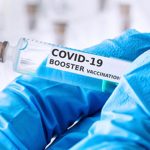
A California bill would have made free condoms available for high schoolers, but it was vetoed Sunday by Gov. Gavin Newsom because of cost. California has a budget deficit of $30 billion, Newsom noted in his veto of Senate Bill 541. This bill, plus several other measures lawmakers passed, would have increased state budget costs by $19 billion. “This bill would create an unfunded mandate to public schools that should be considered in the annual budget process,” the Democratic governor wrote. If the bill had been allowed to go through, it would have required public schools with grades 9 through 12 to make condoms available and free for all students. Those with grades 7 through 12 would have been required to allow condoms to be available as part of educational or public health programs. The state has 1.9 million high school students in more than 4,000 schools, the Associated Press reported. Under the bill, retailers would also have not been allowed to refuse to sell condoms to youth. The bill would have helped “youth who decide to become sexually active to protect themselves and their partners from [sexually transmitted infections], while also removing barriers that potentially shame them and lead to unsafe sex,” said the bill’s author, State Sen. Caroline Menjivar, a Democrat from Los Angeles, the AP reported. Newsom said programs that increase access… read on > read on >





































